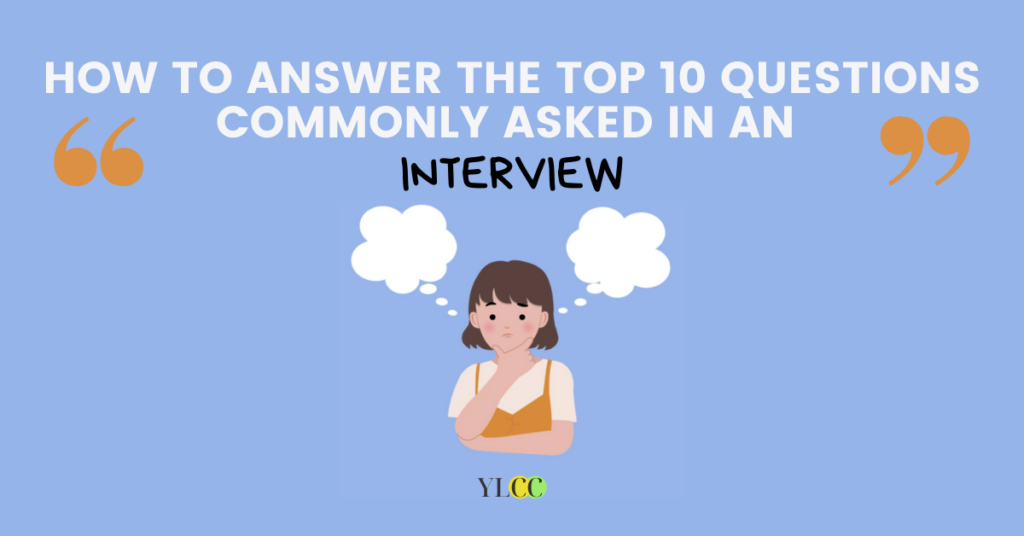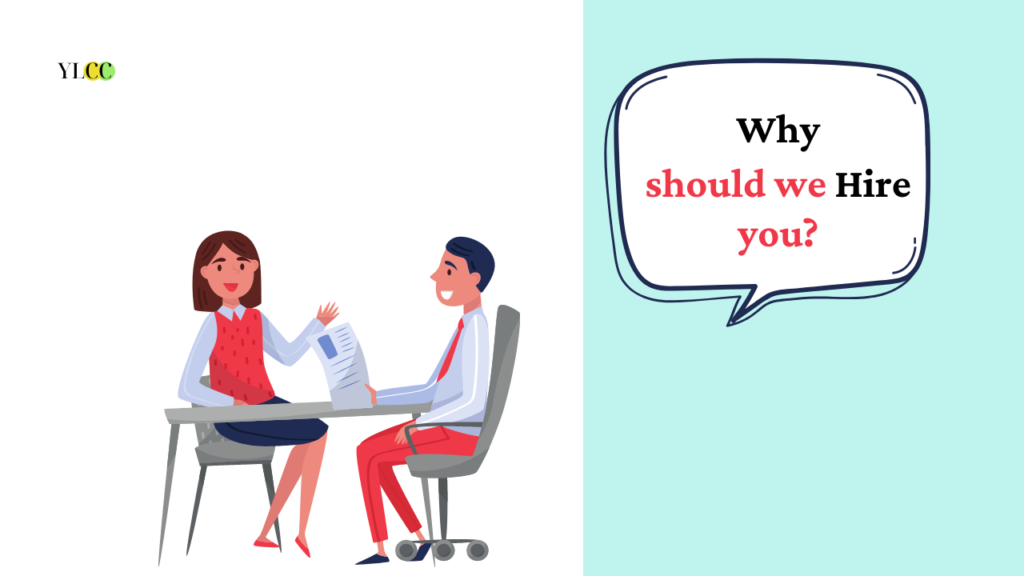
1. Tell me something about Yourself
This is the most common question asked in an interview, which determines the further interest of the recruiter in interviewing the candidate. The main purpose of this question is to evaluate your communication skills, the way you present yourself, and most importantly your confidence level.
There are several ways in which this question can be asked as e.g. ‘Talk about yourself in brief’, ‘Introduce yourself’, etc.
The best way to answer this question can be described with the following steps:
- Give a one-sentence introduction about yourself. For e.g.
“Hi, I am Nishant Rana. I am a final year student having specialization in Corporate Law.”
However, do not repeat your name if the interviewer has already introduced you by your name. It reflects poor listening skills.
- Say 3-5 sentences about your achievements.
These sentences should highlight your academic achievements that will help impress the recruiter. You are only required to highlight qualifications that are specific to the the job description you are applying for to stand out from the crowd and conveying how you are the right fit for the position. For example: “I’ve done a 6 months internship in AutoCAD, CNC milling, and 1 month workshop in IC engine from IIT Roorkee, and therefore possess a good knowledge of industrial machining.”
- Why do you need this job?
This can be tricky and you should make a point not to undermine or overstate the importance of the job. This is likely to be the closing part of your statement which should be positive and inspiring to make a good impression over the recruiter.
For example: “I am interested in this job to enhance my knowledge. I believe this ends my search for a productive role to hone my skills and an opportunity to grow further. I’m a quick learner and eager to face new challenges required to perform better.”
These are the basic points one needs to address in this question. The applicant should not take more than 45-60 seconds to answer otherwise there is a possibility that the recruiter will get bored and lose interest in the interview.
Tips to remember :-
- Don’t talk about your family until the recruiter himself asks you. Mostly they have no interest in your life.
- Talk about your achievements only which are relevant to the job.
- Try speaking to the point.
- Some applicants try to speak in a fake accent which should be prevented, try to show the natural you.
- Ask if you can’t understand. It’s better to ask again than to give a wrong answer of the question you don’t understand.
2. Why should we hire you?
Another alternate question can be ‘What interests you about this job role?’
This answer is the crux of the interview and should be treated with paramount importance. The ideal answer will differ depending on the individual and profession. However, here are some points to remember:
- One must know about the company, its products and services.
- Conduct prior research about the history and growth dynamics or ethics of the company.
- The reason you like this role or what you like the most about the company.
- Most importantly demonstrate that your skillset is tailor-made for the job requirement.
For example: You may say that, “Honestly, I knew about the company prior to this opportunity but afterwards I conducted more thorough research and I am certain that as a fresher, I am ready to grow and am capable of bringing great value to the company. It would be my pleasure to be a part of this company and use my skills to help the company with fresh ideas and innovations.”
This shows that despite having little or no knowledge about the company you made the effort and researched about the job and you are serious about the job.
Q.3. Where do you see yourself five to ten years from now?
The recruiter asks this question to assess your personal goals and your vision about the future. This shows that you are a good planner and also ambitious. It takes much time and energy to recruit an employee and for the most part companies do not prefer hiring candidates for a short-term. It is important to convince the recruiting panel that you are more than willing to remain associated with the company (preferably with promotions) even after 5 or 10 years.
Q.4. How do you approach personal and professional challenges in life?
This question is to evaluate your ability to handle crises and pressure situations. If you are fresher, refrain from exaggerating and instead paint a realistic picture. Additionally, you may highlight that you faced a number of challenges in your student life and during internships (if you have done any). Give an example of any previous challenge you faced where you ended up as a winner at the end of the day.
You can say that, “I am able to return my composure under any circumstance and always try to handle the situation in the best way possible.”
Q.5. What salary do you expect?
Here the recruiter wants to know your confidence over your skills and how much you value your labour. Every company has a budget, so make sure you get an idea on whether the company can afford you. It is best for the interviewing panel to raise this issue. Know your worth, your skills and highlight how your recruitment will benefit the company.
Keep these points in mind when asked this question:
- What is the range offered to the employees to this position in the company?
- The salary should not be below the industry standard.
- If you possess prior work experience, then you may negotiate e.g. “I am already getting paid 5.4 Lakhs p/a and expect a hike of at least 20%.”
This is also your opportunity to know about and negotiate perks. For example, you might say that, “As a fresher, I wish to learn and hone my skills through this platform and I am therefore expecting the salary as per industry standards. Additionally, I have also heard that the company provides funding for further education which I am hoping to be eligible for in the long run.”

Q.6. Do you have any questions?
This is the question asked at the end of the interview. Many of the applicants try to escape this and say, “No sir, I have no questions!” and move out. This is a mistake. Remember this may be the last question from the recruiter but your interview is far from over. One must ask 2-3 questions which shows that you have a keen interest towards the job.
Read Our Article On ‘How To Answer- Are You Willing To Fail’ HERE.
For example: If the recruiter says “Do you have any questions?” you may respond in the affirmative. Here are some ideal questions I can ask:
- “How do you see this company evolve within the next 5-10 years?” as this question shows your eagerness to work with them and your plans on staying with the company for a longer time period.
- “What can you tell me more about my job role?” this question shows that you are invested in your responsibilities as well as the success of the company than in a mere paycheck.
- “How is the work environment like in the company?” – this question shows that you are a good team player and are eager to know about your co-workers, which highlights that you are aware of the corporate challenges that requires good teamwork to overcome a situation.
Q.7. What are your strengths and weaknesses?
Give at least 3 unique strengths. Avoid using generic phrases such as “I am hard working”, “I am enthusiastic”, etc.
Mostly highlight your skills which are useful to the company as your major strengths. The strengths you mention should also have some evidence and should be provided with an illustration from your previous job role or any other situation from your student life.
Read our article on ‘How To Answer- How Many Hours A Week Do You Normally Work?’ HERE.
Some of the brilliant strength examples can be:
- “Discipline and focused”. This shows that you are dependable and can be reliable during the necessities.
- “Flexible and versatile”. This shows that you are willing to venture out of your comfort zone and that you will give your best to achieve best results.
- “Creative and Innovative”. This shows that you are the type of person who will help the business to find ways to increase sales and bring new ideas to improve customer services and you will also think out of the box to overcome the challenges.
Talking about the weaknesses, one should not reveal his weaknesses such as “I am not perfect at timekeeping”. As in the corporate world time is the most crucial term of the job. You have to be punctual and good at multitasking within the given time.
Always give an honest weakness. Never say that you have no weaknesses or that you are a perfectionist. State some of your genuine weaknesses that are unlikely to directly affect your chances and that you are working on improving these weaknesses.
Some weaknesses you can flaunt are:
- I focus too much on the details
- I find it difficult to say ‘no’
- I have a hard time letting go of a project
- I find it an issue to ask people for help
Q.8. What does your ideal workplace look like?
This is a tricky question. The main objective of this question is whether you can fit in their environment.
To answer this question you have to do some homework regarding the basic information of the company. The recruiter here wishes to know your knowledge about the company. If you have any references who are present or ex-employees, use them well to know about the work culture in the company ahead of time.
Q.9. Describe the most difficult situation you have ever faced and how did you handle it?
This is your opportunity to substantiate your credentials. The objective here is to demonstrate that you are a determined, positive and resilient person. In your answer you must show that you are the person who gives priority to the needs of his team and that you are not afraid to tackle difficulties professionally.
Q.10. What do you like or dislike about your present job?
Some points one needs to take care of:
- Be positive and complimentary about your last job.
- Always state that you were happy in your role but also state a single point that frustrated you to add authenticity to your expression.
- Mention how you can turn around the drawbacks from the previous role and nail your current position.
For example: “In my previous position, I was happy and my employer was very supportive towards my job role. The team was good and we have achieved together. However, the thing that frustrated me slightly was that on occasions, my skills and talent were not used to their fullest as a result of which my personal growth was hindered. I am a competitive employee, so I felt that I had so much more to offer but no scope to grow. This led me to apply for this position.”
YLCC would like to thank Somesh for his valuable inputs in this article.
Read our article on ‘How To Answer- Describe Your Work Ethic’ HERE.






